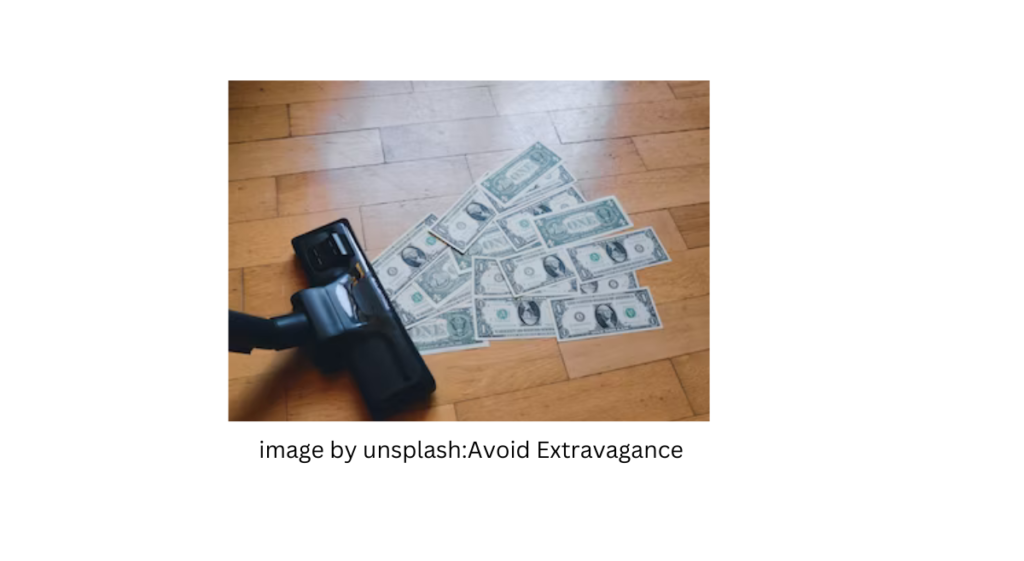Introduction:-
Smart Money-Saving Strategies to Beat Rising Inflation and Avoid Extravagance

In today’s ever-changing economic landscape, rising inflation poses a significant challenge to individuals and families trying to maintain their financial stability. As prices of goods and services continue to climb, it becomes essential to adopt smart money-saving strategies to safeguard our finances and avoid unnecessary extravagance. In this article, we will explore effective tips and techniques to counter inflation’s impact and cultivate a prudent approach towards money management.
What are the smart money saving strategies to beat rising inflation and avoid Extravagance spending?
- Create a Budget and Stick to It
One of the most crucial steps in navigating inflation’s effects is to create a comprehensive budget. Take the time to analyze your income, expenses, and financial goals. Categorize your spending, prioritize essential items, and allocate funds accordingly. By adhering to a well-structured budget, you can control your expenses and make informed decisions about your finances.

- Reduce Discretionary Spending
As inflation soars, it’s essential to cut back on non-essential or discretionary spending. Evaluate your lifestyle and identify areas where you can make reasonable adjustments. For example, dining out less frequently, finding cost-effective entertainment options, and refraining from impulse purchases can significantly impact your savings.
- Save and Invest Wisely
With inflation eroding the purchasing power of money, saving alone may not be enough to combat its effects. Explore different investment options to grow your wealth and hedge against inflation. Consider diversified investment portfolios, including stocks, bonds, real estate, and precious metals, to protect your money from losing value over time.
- Embrace Frugal Living
Practicing frugality is an excellent way to counteract inflation’s impact. Look for opportunities to save on everyday expenses, such as opting for generic brands, using coupons, and comparing prices before making significant purchases. Cultivate a minimalist mindset and focus on purchasing only what you truly need.
- Pay Off High-Interest Debts
As inflation rises, so does the cost of borrowing. If you have outstanding high-interest debts, prioritize paying them off as quickly as possible. By reducing your debt burden, you can save significant amounts on interest payments and free up funds for other essential expenses or investments.
- Explore Alternative Income Streams
Supplementing your primary income with additional streams can prove beneficial during times of inflation. Look for side hustles or freelance opportunities that align with your skills and interests. Embracing the gig economy can provide a safety net and boost your overall financial resilience.
- Plan for Long-Term Goals
Inflation impacts not only short-term finances but also long-term financial goals, such as retirement. It’s essential to plan ahead and account for inflation when estimating the funds required for your future needs. Utilize retirement accounts like 401(k)s or IRAs to take advantage of tax benefits and compound interest.
Where to invest to make smart money to beat rising inflation and avoid Extravagance spending?
Investing to beat rising inflation and avoid extravagance spending requires a careful and strategic approach. Here are some potential investment options to consider:

- Stocks: Historically, stocks have outperformed inflation over the long term. Investing in a diversified portfolio of stocks can help your money grow and keep pace with rising prices. Consider blue-chip companies with a proven track record of stability and growth.
- Real Estate: Real estate can act as a hedge against inflation, as property values and rental income tend to rise with inflation. Investing in real estate properties or real estate investment trusts (REITs) can be a wise choice for long-term wealth accumulation.
- Commodities: Certain commodities, like gold and silver, have been traditionally considered as inflation hedges. Precious metals tend to retain their value during times of economic uncertainty and rising inflation.
- Treasury Inflation-Protected Securities (TIPS): TIPS are government bonds designed to protect against inflation. Their principal value adjusts with changes in the Consumer Price Index (CPI), ensuring that the investment keeps pace with inflation.
- High-Yield Savings Accounts: Although they may not provide significant returns, high-yield savings accounts offer a safe and liquid option for preserving your money’s value. Look for accounts with competitive interest rates to maximize your savings.
- Peer-to-Peer Lending: Participating in peer-to-peer lending platforms can provide an opportunity to earn higher returns compared to traditional savings accounts. However, it comes with higher risk, so conduct thorough research and only invest what you can afford to lose.
- Dividend-Paying Stocks: Consider investing in companies with a history of consistent dividend payments. Dividends can provide a source of income and act as a buffer against inflationary pressures.
- Index Funds and Exchange-Traded Funds (ETFs): These investment vehicles offer diversification and lower fees, making them a popular choice for investors looking to beat inflation while managing risk.
- Education and Skill Development: Investing in yourself by acquiring new skills or pursuing higher education can lead to better job prospects and income growth, helping you combat inflation’s impact on your personal finances.
Remember, all investments come with risks, and it’s essential to align your investment choices with your risk tolerance, financial goals, and time horizon. Diversification across different asset classes can help spread risk and improve the likelihood of achieving your financial objectives while protecting against inflation’s erosive effects. Consider consulting with a financial advisor to develop a personalized investment strategy tailored to your specific needs and circumstances.
Conclusion
Rising inflation can be challenging, but with a proactive approach and smart money-saving strategies, it is possible to maintain financial stability and avoid unnecessary extravagance. By creating a budget, reducing discretionary spending, saving and investing wisely, embracing frugality, paying off debts, exploring alternative income streams, and planning for long-term goals, you can navigate inflation’s impact and secure a brighter financial future. Remember, adopting a disciplined approach to money management is the key to financial success in any economic climate.




